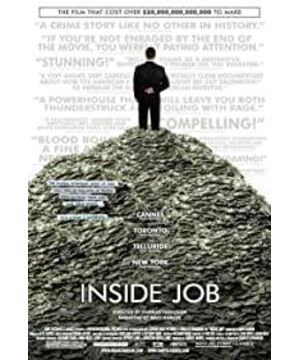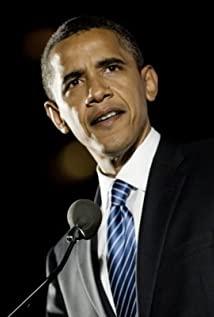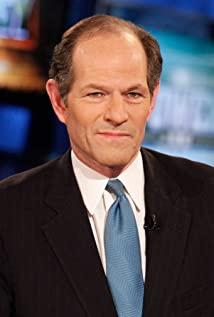The day I watched the first half of the film was in the bath center when I was back in Hangzhou. I just finished reading the second half today.
In fact, it is very simple, that is to say the reasons for the financial crises. First, the government lowered interest rates, making the cost of borrowing money from banks very low. Second, the development of financial derivatives has made it easy to circulate funds, while financial products are designed to be very complicated, making some risks concealed. Third, it is Wall Street's influence on politics, which makes the government loosen the supervision of financial derivatives, and how the executives guard against theft.
In fact, I have never figured out a question before, that is, since the currency circulating in the market is money released by the central bank, where does the interest come from. The money in the market is borrowed from the bank, and the bank's money comes from the central bank. Other than that, there is no other source of money. Where does the interest come from? So in the end, we can only demolish the east wall to make up the west wall. Take the money flowing out of the bank now and use it to repay the previous money. If we say that the money flowing out of the bank is less than last time, then it will definitely not be able to pay the interest. It must be bankrupt. That being said, bankruptcy is a normal thing. This is also the root cause of the modern economic crisis.
When the government lowers interest rates and bank reserve ratios, there will naturally be more money circulating in the market. This will naturally cause inflation, but zf will stare at the prices of daily consumer goods, as long as the prices of these things do not rise too far. I feel that inflation is tolerable. But it ignores the harm of various capital market bubbles. It is impossible to create wealth if money does not flow through the real economy. The central bank’s laissez-faire distorted prices. Investing in real estate no longer looks at rents, and investing in stocks no longer looks at dividends. It only hopes that the price of real estate and stocks will rise after the price rises, and the financial market has become a complete arena. The too low interest rates leave no room for interest rates to go down. Sooner or later, the chips in the hands of gamblers will be exhausted.
The financial industry is actually an industry that can help you get money. The development of the financial industry has allowed us to get money at a lower cost. This has indeed promoted the development of the real economy. Financial products are changing with each passing day and are the crystallization of the wisdom of geniuses. In the film, you can see that financial innovation has contributed to the financial crisis. But this is not the fault of financial innovation. Is it the gun's fault to shoot someone? In fact, the same phenomenon can be seen in China. It's just that there are few financial products in China, so the mode of operation in the film becomes very simple. A boss borrowed money to buy a piece of land, the price of the land rose, and then mortgaged the land to cover the money. Take money to buy land, mortgage and borrow money again. Keep buying land, and the price of land keeps rising, the book of the boss becomes very good-looking. Banks will have control over risks and give a discount on the price of collateral, which may be 20%. The bank sees that the risk is controllable and is happy to earn this interest. (So I extremely doubt whether risk control is useful and can let you miss opportunities, but it may not help you avoid risks.) But as long as the land price rises more than this number, then the boss will still make money. But as soon as the land price drops, the boss will have nothing. The bank has reaped a bunch of land whose prices have shrunk greatly. I don't think financial institutions deliberately conceal the risk, because when the market is optimistic, the risk is really not big, and everyone makes money. But once the market is bad, these risks are multiplied. It is indeed possible that some organizations may conceal themselves out of interest. And not all investors can see the huge risks hidden in this mode of operation. Is this a fraud? If the organization has concealed it, it will be regarded as fraud.
There is moral hazard. The separation of management rights and ownership will naturally lead to moral hazards. Moral hazard, in fact, does not necessarily mean that you directly hacked the money that others gave you to manage. It also includes using other people's money to invest, and if you lose your own money, a large part of the money you make belongs to yourself. Then I am very impulsive to invest in those high-risk and high-yield products. If you make a profit, I share the high income; if you lose, you bear a high-risk loss. There is no shortage of talents on Wall Street who do this kind of thing.
Wall Street exerts influence on Congress and relaxes financial supervision. I myself oppose government intervention in the market. But if it involves fraud and corruption, the government doesn't care who manages it. For example, depositors deposit money in banks, but banks use the money to invest in high-risk and high-yield investments. Is this reasonable in itself? Doesn't this need supervision? The market is self-disciplined, and such banks will indeed go bankrupt. But the depositor's money is really in vain. In the free world, we need to be responsible for our actions and pay for our decisions. It is not that we have to bear the losses that do not belong to us. We have to defend the free choice of capitalists, because at the same time we are cherishing our own freedom, rather than defending fraud and corruption.
Large financial institutions are also a problem. Financial institutions are so large that bankruptcies will have an impact on the entire industry. So the government pays the taxpayer's money. Since there will be no bankruptcy, the executives of the organization are naturally confident. Even if it is bankrupt, the executives will leave with the previous money, and there will be no problem. Originally, I was naive to think that foreigners have high moral standards. Only then did I know that foreigners are also human beings.
View more about Inside Job reviews











